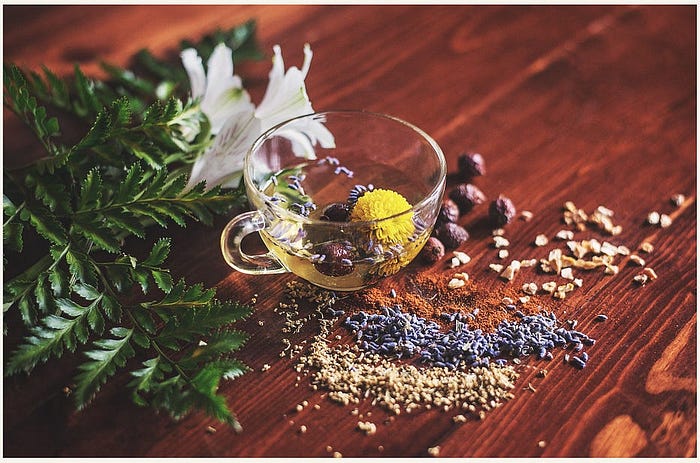Herbal Remedies: Assessing Safety and Effectiveness
Written on
Understanding the Safety of Herbal Remedies
While herbal remedies are often viewed as natural and benign, it’s crucial to recognize that they are not always safe.

It’s a common misconception that the natural origin of herbal remedies guarantees their safety and gentleness compared to prescription medications. However, this is not universally true. Certain plants are extremely toxic and can lead to fatal outcomes even in minimal doses. Additionally, some herbs may provoke severe allergic reactions or interfere dangerously with other medications. How can individuals utilize herbal remedies while minimizing health risks?
Evaluating Health Before Herbal Use
Before considering herbal treatments, it’s essential to assess one’s health status. In cases of severe or unusual conditions, or if the individual is frail, seeking professional medical advice is imperative. When taking any medications—whether prescribed, over-the-counter, or homemade—caution is necessary to prevent adverse interactions. It’s also vital to confirm that the individual is not allergic to any components of the herbal remedy (not just the primary active ingredient). If uncertainty arises about a new herb, it’s prudent to start with a minimal quantity and monitor for any adverse reactions before proceeding with treatment.
Correct Identification of Herbs
Ensuring the accurate identification of herbs is critical. There may be various species within the same plant family that have different properties and uses. For instance, while various types of culinary sage (Salvia officinalis) can often be substituted for one another, this does not hold true for different mints (Mentha) or other Salvia species. When foraging, the risk of misidentifying plants is high, so it’s essential to be completely certain of what you’re collecting.
Responsible Use and Duration
Excessive or prolonged use of herbal remedies should be avoided. Even commonly used kitchen herbs can become harmful in large quantities over time. For example, while rosemary, lavender, and bay are safe in culinary amounts, consuming large doses can lead to negative side effects.
Pregnancy and Herbal Remedies
Pregnant individuals should exercise particular caution regarding herbal remedies and all medications, as some may pose risks to the fetus or trigger miscarriages. Herbs that influence hormones or are known to induce menstruation, such as rue, should be strictly avoided by pregnant women.
Quality and Care in Preparation
Herbs used should be fresh, free from pests, diseases, and any form of chemical contamination, including natural pesticides. All other ingredients must also meet high-quality standards. Careful preparation of the remedy and appropriate storage are essential to ensure safety and efficacy.
Comparative Risks
The risks associated with herbal remedies are comparable to those linked with conventional medications. Prescription drugs carry their own potential dangers, and it’s important to be vigilant about possible interactions or allergic reactions. Interestingly, many herbs possess built-in safeguards against side effects, and studies indicate that isolating active ingredients can lead to complications that do not arise when the whole plant is used.
Mild Actions of Herbal Remedies
Numerous herbs serve dual purposes in the kitchen and as medicinal aids. Generally, if a plant has been safely consumed, it’s reasonable to explore infusions or decoctions made from it. Many herbal remedies are gentle, making them ideal for addressing early signs of illness, potentially preventing more serious health issues. For instance, sipping rosemary tea to alleviate anxiety or chamomile tea to promote sleep can help avert more severe conditions. Similarly, consuming a small quantity of sorrel can aid digestion and prevent constipation, while regular parsley intake may combat anemia, and feverfew can alleviate headaches. Preventing illness is often preferable to addressing it once it becomes severe.
Benefits of Home-Grown Remedies
One of the main advantages of cultivating herbal remedies at home is their immediate, cost-effective availability. Unlike scheduling a doctor's appointment or purchasing expensive over-the-counter medications, harvesting herbs from your garden can be a swift and enjoyable process. Additionally, many people find herbal remedies to be pleasant; enjoying a warm herbal tea sweetened with honey is often more enjoyable than swallowing pills, and preparing a fresh herb salad is far more appealing than waiting in a doctor's office. For many, the act of gathering fresh herbs and preparing remedies can be a therapeutic experience in itself.
Chapter 2: Potential Risks of Herbal Remedies
In the video titled "Why Herbal Supplements Taken With Prescription Drugs May Be Risky," experts discuss the potential dangers of combining herbal supplements with conventional medications and emphasize the importance of consulting healthcare providers before use.
In another informative video, "Medical Experts Warn About Using Herbal Remedies: Check If It's Safe With Your Doctors," professionals provide crucial insights on the safety of herbal remedies and the necessity of professional guidance.